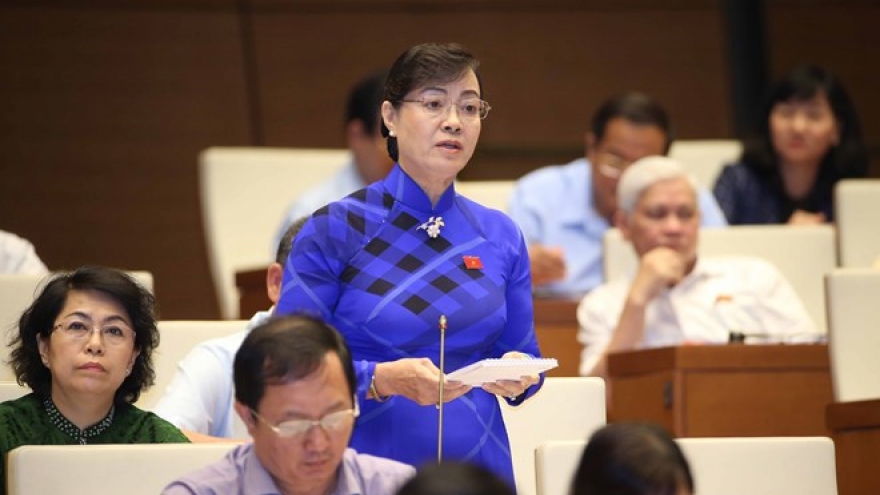Scope of Anti-Corruption Law supported to cover non-State sector
A report on revisions to the draft amended Anti-Corruption Law has showed many lawmakers’ support for expanding the law’s scope to the non-State sector.
 |
On behalf of the Prime Minister, Inspector General of the Government Inspectorate Le Minh Khai presented a report on amendments to the draft law, noting the expansion of those subject to compulsory anti-corruption measures.
He explained that activities of non-State organisations and businesses greatly affect the development of economy as well as the rights and legitimate interests of people and individuals and organisations concerned. A review of existing legal regulations showed that corruption prevention and combat in these organisations and enterprises haven’t been clearly regulated.
Regarding Article 37 of the draft law, some deputies supported the expansion of subjects obligated to declare their asset and income so that the article will match regulations of the Party. Others advocated the narrowness of the persons with this obligation, saying that the law should focus on people holding the positions with high risks of committing corruption. Meanwhile, some opinions suggested only the ones elected or appointed be obligated to declare their asset and income.
The Government chose the first option, Khai said, noting that the expansion to all officials, public employees and civil servants holding the positions equivalent to division deputy heads or higher when they are employed by or appointed to public agencies and organisations for the first time is a necessary step to form a synchronous national data system on asset and income declaration, thus helping to effectively control changes in their asset and income when they have to make annual declaration.
Presenting a report verifying the draft revised law, Chairwoman of the NA’s Committee for Judicial Affairs Le Thi Nga said the document has absorbed opinions raised by deputies. Many regulations have been amended to ensure the draft will be more feasible and match the reality and the current legal system.
She said this is a very important draft law as it influences many social aspects, so some big, complicated and debatable contents need thorough consideration to ensure that the law will improve anti-corruption effectiveness, address existing shortcomings in the law enforcement, and be more feasible amid the specific economic, cultural and social conditions of Vietnam.


